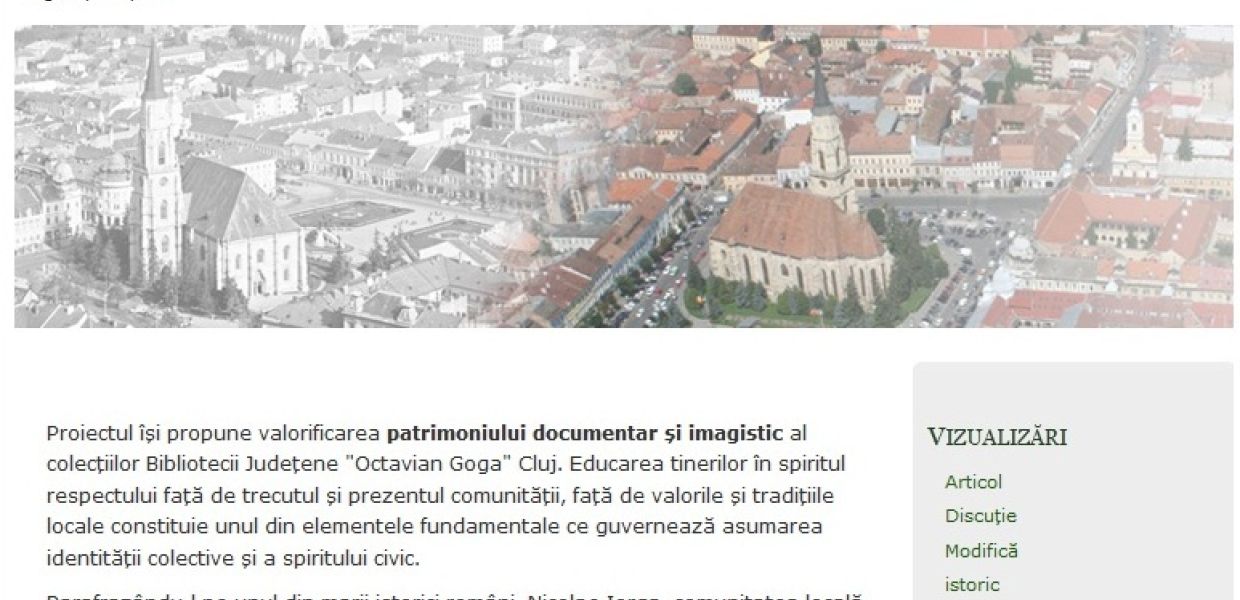Meet the Members Council: Sorina Stanca

I started working in the library field 20 years ago, in a public library in the city of Cluj-Napoca, Romania. From the very beginning, I was interested in helping people find the information they needed easily. With this goal in mind, I started thinking about how to make library collections more accessible.
In 2007, we started a new project to enhance our local history collections. Local history collections housed in public libraries reflect the community in all its diversity. They also help educate people by encouraging them to actively participate in order to safeguard and promote a community identity. The result of our project was a ‘Local memory and knowledge’ portal. It offers information from trustworthy sources about our town and the Cluj County region. Many of our colleagues from public libraries liked this idea and started creating similar portals for their own collections.

Main page of 'Local memory and knowledge' portal, Cluj County Library, Public Domain
This was the starting point of a long-term collaboration between local cultural institutions in Romania. Later that year, our library became an aggregator for Europeana in a great project - Europeana Local. Types of material now available from Romanian cultural institutions through Europeana include items and collections of high cultural value held at local or regional level and specific local collections held by libraries, museums and archives. Our contribution greatly expanded and enriched the freely available and accessible content people can find through Europeana. This was possible because all content providers met the standards and specifications used by Europeana.
Our work has continued with the LoCloud project, which helps small and medium size cultural institutions to make their content and metadata available through Europeana, with an easy-to-use cloud-based solution.
In recent years, Romanian cultural institutions have started to see digitization as a very good solution for enhancing their collections. To explore this, our library, in collaboration with the Romanian National Library, organized a workshop to share good practice examples from Romania, Bulgaria, Hungary and Poland.

Professional workshop at Romanian National Library, Cluj County Library Photo Archive
Making more locally-relevant cultural content from Romanian cultural institutions available through Europeana will be one of my goals as a Council Member.
I’m also interested in sustainability. I want to work with other organisations in Romania to make sure we have a logical, scalable and long-term solution to gather more of our nation’s digital cultural material and make it available through Europeana.
